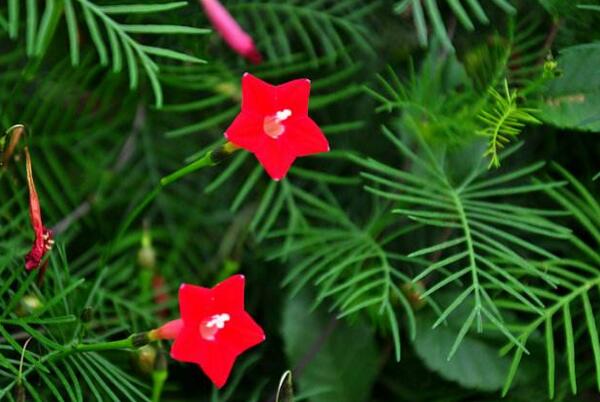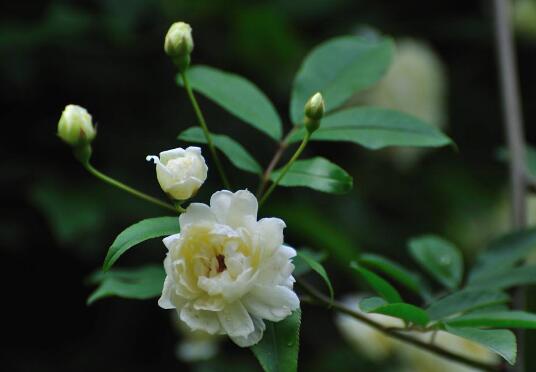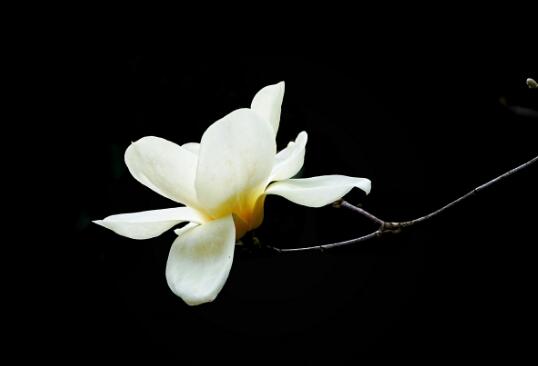Control methods of common diseases and insect pests of pineapple, powdery mildew / leaf spot / aphids / beetles
Although pineapple is very tenacious in vitality and has a strong ability to adapt to the environment, in the process of planting, pineapple is sometimes infected with diseases and insect pests because of negligence in management, sudden changes in the environment, and so on. Once the consequences are unimaginable, here the editor will tell you a few common pest control methods to avoid tragedies.
Prevention and control of common diseases and insect pests of pineapple
1. Leaf spot

The main symptoms: pineapple leaves appear black-brown disease spot, the disease spot on the stem and petiole is long strip, the color is brown, at first small but will continue to expand, and finally become irregular, the disease spot will also produce wheel patterns, resulting in leaf withering, yellowing, plant growth weakening.
Prevention and control measures: usually pay attention to pruning to ensure that the density of branches and leaves of pineapple is moderate, increase the ventilation of the environment, and reduce air humidity. After the onset of the disease, it was sprayed with 38% cuproloxil 800-1000 times and 50% topiramate 1000 times.
2. Powdery mildew
Main symptoms: yellow dots appear on pineapple leaves, these dots will gradually expand and develop into round or oval, there will be a white powdery mildew layer on the surface of the disease spot, and usually the lower leaves suffer more seriously. as the leaves are covered with powder, resulting in the lack of photosynthesis, decline will be earlier.
Prevention and control methods: among the common diseases and insect pests of pineapple, powdery mildew is relatively easy to prevent. the law of its incidence is excessive application of nitrogen fertilizer, excessive density of branches and leaves, opaque light, and so on. Avoiding these two situations can well prevent powdery mildew, and when the disease occurs, it is necessary to spray with 1000 times of trimethoprim.
3. Beetles
The beetle is a kind of pest with many kinds. It will eat the root and stem of the pineapple, causing damage to the underground part, especially in the process of reproduction, which is easy to be invaded by the beetle, resulting in a decline in the success rate of reproduction. In addition, it may also harm the leaves, flowers, fruits and so on.
Prevention and control methods: choose good and robust pineapple varieties when planting, usually do a good job of environmental hygiene, ensure that the air humidity is moderate, the temperature is not too high, and let pineapple receive sufficient light at the same time. After the onset of the disease, the beetle can be sprayed with 2500 times of deworming essential oil.
4. Aphids
Aphids are very small, but they reproduce very fast. They are one of the most common pests. They suck juice from pineapple leaves and cause plant malnutrition. Aphids are one of the most troublesome pests in flower culture, but their control methods are relatively mature.
Prevention and control methods: when aphids are small, you can use a brush to gently scrape off the aphids to reduce the harm of aphids to the plant, and then cut off the damaged branches and leaves, and then need to spray drugs to completely eliminate aphids. Commonly used drugs have 40% omethoate emulsion 2000 times, and so on.
Culture methods of pineapple
Pineapple is an excellent plant in the courtyard flower rack and hedgerow, also known as Golden Thread, Jinpingfeng, Lion Grass and so on. It is an annual weak and twining herb of the genus Prunus of the rosette family, with slender and beautiful leaves, and can also be potted indoors when the flowers bloom. Although its flower shape is small, it is scattered in the green leaves, lively and moving. Let's take a look at the breeding methods of pineapple.
The growth habits of pineapple
Pineapple likes light, likes warm and humid environment, grows in an area of 0 to 2500 meters above sea level, is not cold-resistant, can self-sow (usually introduced by artificial cultivation), and requires fertile soil. Strong resistance and easy management. The capsule contains 4 seeds, which, after maturity, falls to the ground and grows in the following year. If sown artificially, it will be sown in March. The seedlings were transplanted with a length of 10 cm. In order to bloom more, it should be planted in the fertile soil in the sunny place. Potted plants should stand on brackets for winding, and they are extremely slender and beautiful when they bloom.
The method of propagation of pineapple
The main results are as follows: 1. The ripening period of pineapple fruit is different, and it is easy to fall off after ripening. Each fruit contains 3-4 seeds. If there are both red and white flowers, seeds should be collected separately.
2. The pineapple seeds were sown in April of the following year and germinated a week later. The days of raising seedlings in the open field after the final frost are about 45 days, which should not be too long, otherwise the vines from the seedlings will be intertwined.
Culture methods of pineapple
1. Soil: pineapple can grow well by sowing and cultivating seedlings with ordinary nutritious soil. After sowing, cover fine soil about 1.5 cm, not too thin.
2. Temperature: pineapple is native to the tropics, likes warmth, avoids cold, fears frost, grows very slowly when the temperature is low, and the suitable temperature for seed germination is 20-25 ℃.
3, water and fertilizer: pineapple should apply sufficient base fertilizer, timely fertilization, watering, timely drainage in the rainy season, lax requirements for soil and fertilizer and water, usually once every 15 days.
4. lighting: pineapple likes a sunny and warm environment, properly thinning vines and leaves, which is not only conducive to ventilation and light, but also make the plant beautiful.
5. Picking flowers: pineapple should pick the residual flowers in time after fade, so that nutrients can be concentrated for new branches to blossom and prolong flowering period.
5. Diseases and pests: pineapple leaf spot and powdery mildew can be sprayed with 50% Taub wettable powder, aphids and beetles are sprayed with 2500 times of 10% deworming essential oil.
What are the culture methods and growth habits of pineapple?
Pineapple is an excellent plant for garden racks and hedgerows, also known as golden thread, Jinpingfeng, lion grass, etc., is an annual weak winding herb of the genus Prunus, so what is the culture method of pineapple?
The culture method of pineapple:
1. Soil: pineapple can grow well by sowing and cultivating seedlings with ordinary nutritious soil. After sowing, cover fine soil about 1.5 cm, not too thin.
2. Temperature: pineapple is native to the tropics, likes warmth, avoids cold, fears frost, grows very slowly when the temperature is low, and the suitable temperature for seed germination is 20-25 ℃.
3, water and fertilizer: pineapple should apply sufficient base fertilizer, timely fertilization, watering, timely drainage in the rainy season, lax requirements for soil and fertilizer and water, usually once every 15 days.
4. lighting: pineapple likes a sunny and warm environment, properly thinning vines and leaves, which is not only conducive to ventilation and light, but also make the plant beautiful.
5. Picking flowers: pineapple should pick the residual flowers in time after fade, so that nutrients can be concentrated for new branches to blossom and prolong flowering period.
5. Diseases and pests: pineapple leaf spot and powdery mildew can be sprayed with 50% Taub wettable powder, aphids and beetles are sprayed with 2500 times of 10% deworming essential oil.
The growth habits of pineapple:
Pineapple likes light, likes warm and humid environment, grows in an area of 0 to 2500 meters above sea level, is not cold-resistant, can self-sow (usually introduced by artificial cultivation), and requires fertile soil. Strong resistance and easy management. The capsule contains 4 seeds, which, after maturity, falls to the ground and grows in the following year. If sown artificially, it will be sown in March. The seedlings were transplanted with a length of 10 cm. In order to bloom more, it should be planted in the fertile soil in the sunny place. Potted plants should stand on brackets for winding, and they are extremely slender and beautiful when they bloom.
The propagation method of pineapple:
The main results are as follows: 1. The ripening period of pineapple fruit is different, and it is easy to fall off after ripening. Each fruit contains 3-4 seeds. If there are both red and white flowers, seeds should be collected separately.
2. The pineapple seeds were sown in April of the following year and germinated a week later. The days of raising seedlings in the open field after the final frost are about 45 days, which should not be too long, otherwise the vines from the seedlings will be intertwined.
- Prev

What should we do if the wood fragrant flowers grow insects? control of diseases and insect pests of wood fragrant flowers / 2 insect pests 2 diseases
In the growth process of wood flowers, the last thing we want to encounter is diseases and insect pests and other problems, this kind of problems do great harm to the plant, not only affect the appearance, but also lead to the phenomenon of plant death. So what should I do if the wood fragrant flowers grow worms? What should be done to prevent and control diseases and insect pests of wood fragrant flowers
- Next

What to do when magnolia grows insects? disease and pest control of magnolia / 3 insect pests and 2 diseases
In the growth process of magnolia, the last thing we want to encounter is diseases and insect pests, this kind of problem is very harmful to the plant, and even lead to the phenomenon of plant death. So what if the magnolia grows worms? How to prevent and control diseases and insect pests of magnolia? Next, the editor will take you to learn about it.
Related
- Fuxing push coffee new agricultural production and marketing class: lack of small-scale processing plants
- Jujube rice field leisure farm deep ploughing Yilan for five years to create a space for organic food and play
- Nongyu Farm-A trial of organic papaya for brave women with advanced technology
- Four points for attention in the prevention and control of diseases and insect pests of edible fungi
- How to add nutrient solution to Edible Fungi
- Is there any good way to control edible fungus mites?
- Open Inoculation Technology of Edible Fungi
- Is there any clever way to use fertilizer for edible fungus in winter?
- What agents are used to kill the pathogens of edible fungi in the mushroom shed?
- Rapid drying of Edible Fungi

